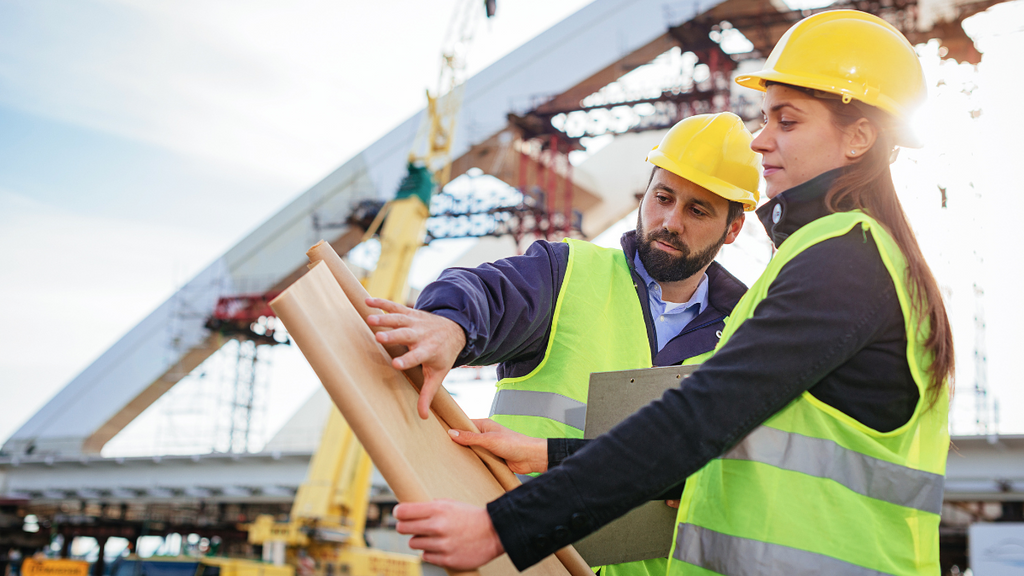The Basic Principles Of Geotheta
The Basic Principles Of Geotheta
Blog Article
Some Known Details About Geotheta
Table of ContentsIndicators on Geotheta You Should KnowGeotheta Fundamentals ExplainedThe Only Guide to GeothetaHow Geotheta can Save You Time, Stress, and Money.The Definitive Guide for Geotheta

They conduct website examinations, accumulate samples, do research laboratory examinations, and analyze data to assess the suitability of the ground for building jobs - Consulting Engineer. Based upon their searchings for, geotechnical designers give referrals for structure layout, incline security, keeping structures, and mitigation of geotechnical risks. They collaborate with other experts, such as engineers, structural engineers, and construction groups, to make certain that geotechnical factors to consider are integrated right into the overall project layout and application
By assessing the behavior and residential properties of dirt and rock, they can identify potential geotechnical threats such as landslides, dirt settlement, or incline instability. Their proficiency helps protect against failings or mishaps that could endanger lives and home. Here are some thorough obligations and duties of a geotechnical designer: Site Examination: Geotechnical designers conduct website investigations to collect information on subsurface problems.
They interpret the data to understand the residential or commercial properties and behavior of the dirt and rock, including their strength, leaks in the structure, compaction features, and groundwater problems. Geotechnical Analysis and Layout: Geotechnical designers examine the data collected throughout website investigations to examine the stability and viability of the website for building and construction jobs. They carry out geotechnical calculations and modeling to examine elements such as birthing ability, negotiation, slope security, lateral earth stress, and groundwater flow.
Everything about Geotheta
Structure Design: Geotechnical designers play an important duty in developing foundations that can securely sustain the designated framework. They assess the dirt conditions and load requirements to establish the suitable structure type, such as superficial foundations (e.g., footings), deep foundations (e.g (https://geotheta.blog.ss-blog.jp/2024-08-02?1722614750)., stacks), or specialized methods like soil improvement. They consider aspects such as settlement restrictions, birthing ability, and soil-structure communication to develop optimal foundation styles
They examine building and construction strategies, display site tasks, and conduct field inspections to confirm that the layout recommendations are followed. If unexpected geotechnical issues develop, they examine the scenario and provide referrals for removal or adjustments to the design. Danger Analysis and Reduction: Geotechnical engineers evaluate geotechnical dangers and threats related to the job site, such as landslides, liquefaction, or soil erosion.

Collaboration and Interaction: Geotechnical engineers work closely with various other professionals associated with a project, such as designers, architectural designers, and building and construction groups. Effective interaction and collaboration are vital to integrate geotechnical factors to consider right into the general job style and building and construction procedure. Geotechnical engineers give technical knowledge, response questions, and ensure that geotechnical demands are fulfilled.
Excitement About Geotheta
Here are some sorts of geotechnical engineers: Foundation Engineer: Foundation engineers focus on creating and assessing structures for structures. They assess the dirt conditions, load requirements, and website attributes to identify one of the most ideal foundation type and layout, such as superficial foundations, deep foundations, or specialized strategies like pile structures.
They assess the aspects influencing slope security, such as dirt homes, groundwater problems, and incline geometry, and develop methods to avoid incline failings and mitigate risks. Quake try this website Designer: Quake designers specialize in assessing and designing structures to endure seismic forces. They assess the seismic risk of a website, examine dirt liquefaction potential, and create seismic design requirements to guarantee the security and strength of structures throughout quakes.
They execute field screening, gather samples, and analyze the collected data to identify the dirt buildings, geologic formations, and groundwater problems at a site. Geotechnical Instrumentation Engineer: Geotechnical instrumentation engineers focus on tracking and determining the habits of soil, rock, and frameworks. They set up and preserve instrumentation systems that keep track of elements such as soil negotiation, groundwater levels, incline activities, and structural displacements to examine efficiency and supply early warnings of possible concerns.
The Best Strategy To Use For Geotheta
They conduct tests such as triaxial examinations, combination tests, straight shear tests, and permeability examinations to collect data for geotechnical analysis and style. Geosynthetics Engineer: Geosynthetics designers concentrate on the layout and application of geosynthetic products, such as geotextiles, geogrids, and geomembranes. They utilize these products to improve soil stability, enhance slopes, provide drainage services, and control disintegration.
They often tend to be investigative individuals, which means they're intellectual, introspective, and investigative. They are curious, methodical, logical, analytical, and sensible. Some of them are likewise social, indicating they're kind, generous, cooperative, patient, caring, helpful, compassionate, skillful, and pleasant - Geo Tech Engineer.
In the workplace environment, geotechnical engineers make use of specialized software program devices to perform estimations, create designs, and evaluate information. They prepare records, testimonial job requirements, connect with clients and employee, and coordinate task tasks. The office setting provides a conducive atmosphere for research, analysis, and cooperation with other professionals associated with the job.
A Biased View of Geotheta
They often check out project sites to carry out site investigations, assess geotechnical conditions, and gather information for evaluation. These check outs entail taking a trip to different places, sometimes in remote or challenging surfaces. Geotechnical engineers may perform soil tasting, conduct examinations, and screen building activities to make sure that the geotechnical facets of the task are being implemented correctly.
Geotechnical engineers also work in specialized geotechnical research laboratories. Geotechnical lab designers work extensively in these atmospheres, managing testing devices, operating tools, and recording information.
Report this page